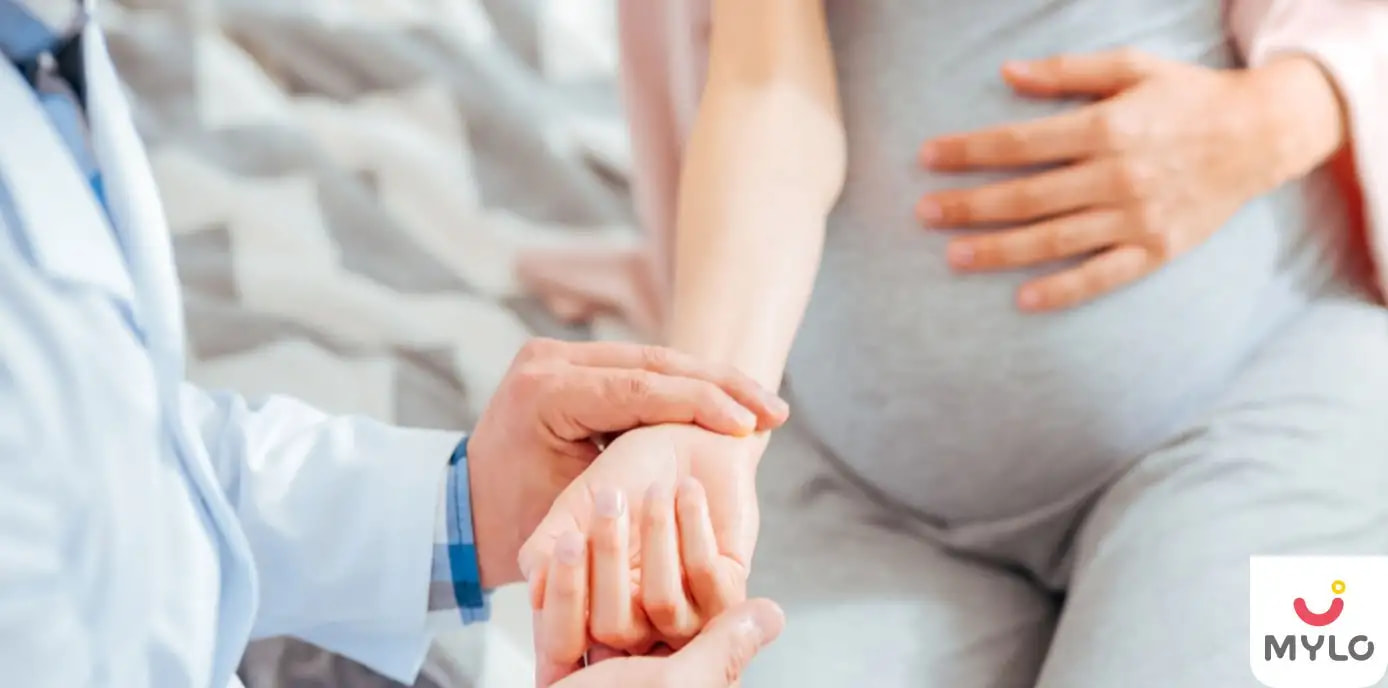Home

Depression in Women Post Delivery

How to Deal with Postpartum Depression?
In this Article
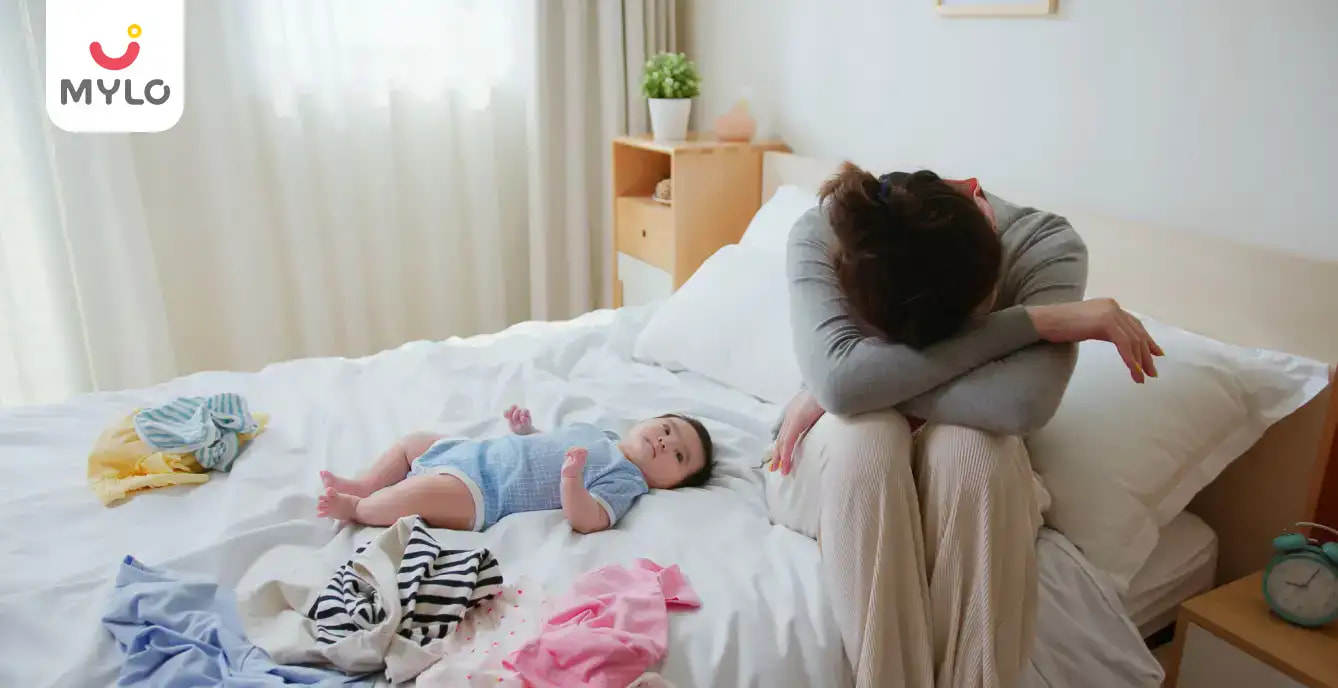
Depression in Women Post Delivery
How to Deal with Postpartum Depression?
Updated on 24 March 2023
The arrival of your baby comes with a gush of changes, challenges and emotions. Being a parent can be exciting, tiring and overwhelming all at once. As a new mom, it’s normal to feel worried or doubtful, especially if it’s your first time. But if your feelings begin to include extreme sadness, worthlessness, guilt, sudden mood swings and crying spells, you may have postpartum depression.
In this article, we will discuss what postpartum depression is and how to deal with postpartum depression.
What is Postpartum Depression?
Postpartum depression is a type of depression that happens after women give birth. It can be caused due to the myriad hormonal, physical and emotional changes that take place after having a baby. Dealing with postpartum depression while taking care of your baby can be challenging but seeking medical help and following some helpful tips can make the situation better.
8 Tips on How to Deal with Postpartum Depression
Here are some helpful tips on how to deal with postpartum depression:
1. Exercise
Exercising regularly can help you feel good about yourself and it may even have an antidepressant effect on you. Try to squeeze in a light to moderate workout session in your daily routine or go out for a walk. You may also walk with your baby in a stroller and get in some fresh air to ease depression.
2. Keep Up a Healthy Diet
The foods you eat can have a significant effect on your mental and physical health. Try to eat a nutritious diet to nourish your body and rejuvenate your mind. Stock up on some healthy snacks like whole wheat crackers and fresh fruits like apples and berries to maintain a healthy diet.
3. Make Time for Yourself
With a newborn baby around on top of household or work responsibilities, creating time for yourself may feel like impossible. But instead of dealing with postpartum depression alone, try reaching out to your partner, friends and family for sharing some of your responsibilities. Make sure to schedule some time with yourself every week, wherein you pamper yourself, go out, watch a movie, meditate or catch up on some sleep.
4. Make Time to Relax
Sleep when your baby sleeps might just be a golden rule when it comes to dealing with postpartum depression. Try to clock in a few good hours of sleep to keep postpartum depression symptoms at bay.
5. Fish Oils First
Fish oils and seafood are excellent sources of Omega-3 fatty acids like DHA, which are known to reduce postpartum depression. If you are a vegetarian, you can also consume flaxseed oil or Omega-3 supplements to keep the postpartum depression at bay.
6. Examine Your Breastfeeding
Breastfeeding can help reduce your risk of developing postpartum depression. So, if breastfeeding your baby is something you enjoy, continue doing it for at least the first six months of your baby’s life.
However, in some cases, women may also develop postpartum depression symptoms like sudden sadness, agitation or anger while breastfeeding. This condition is called D-MER (Dysmorphic Milk Ejection Reflex). Choose the feeding method that makes you happy.
7. Isolation Should be Avoided
Taking care of your little one day in and day out can make you feel isolated at times. Talking to loved ones or fellow mothers about your feelings can help alleviate isolation and change your mood. You may even consider speaking to moms who have experienced postpartum depression in the past and ask them how to deal with postpartum depression.
8. Reach Out for Help When You Need it
Not all battles are fought alone. So, don’t shy from reaching out to friends and family, confiding in loved ones and expressing your feelings. Social interaction, admitting you need help and talking to loved ones will help you feel better and deal with postpartum depression.
To find help for postpartum depression and care, you can check Mylo Postpartum Care Plan that takes care of the new mother's needs and holistic well-being. It can help you with postpartum depression and recovery, increased breast milk secretion, weight loss, improved gut health and constipation relief.
Closing Thoughts
If you have been thinking about how to deal with postpartum depression, you are already taking a step in the right direction. Postpartum depression is treatable and many women notice an improvement in six months. If your condition persists, the symptoms worsen and you start feeling suicidal or paranoid, seek medical help immediately.



Written by
Anupama Chadha
Anupama Chadha, born and raised in Delhi is a content writer who has written extensively for industries such as HR, Healthcare, Finance, Retail and Tech.
Read MoreGet baby's diet chart, and growth tips

Related Articles
Related Questions
Hello frnds..still no pain...doctor said head fix nhi hua hai..bt vagina me pain hai aur back pain bhi... anyone having same issues??

Kon kon c chije aisi hai jo pregnancy mei gas acidity jalan karti hain... Koi btayega plz bcz mujhe aksar khane ke baad hi samagh aata hai ki is chij se gas acidity jalan ho gyi hai. Please share your knowledge

I am 13 week pregnancy. Anyone having Storione-xt tablet. It better to have morning or night ???

Hlo to be moms....i hv a query...in my 9.5 wk i feel body joint pain like in ankle, knee, wrist, shoulder, toes....pain intensity is high...i cnt sleep....what should i do pls help....cn i cosult my doc.

Influenza and boostrix injection kisiko laga hai kya 8 month pregnancy me and q lagta hai ye plz reply me

Related Topics
RECENTLY PUBLISHED ARTICLES
our most recent articles
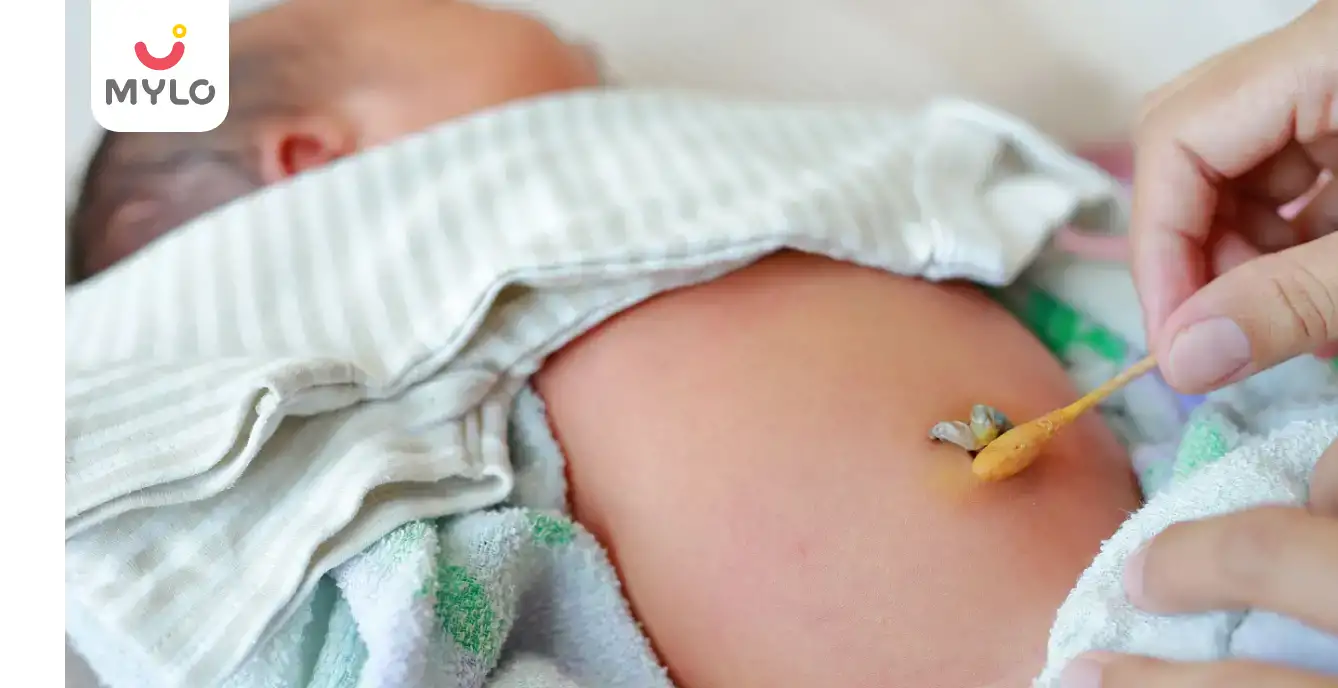
Umbilical Cord
Umbilical Cord: Risks, Benefits & Recovery
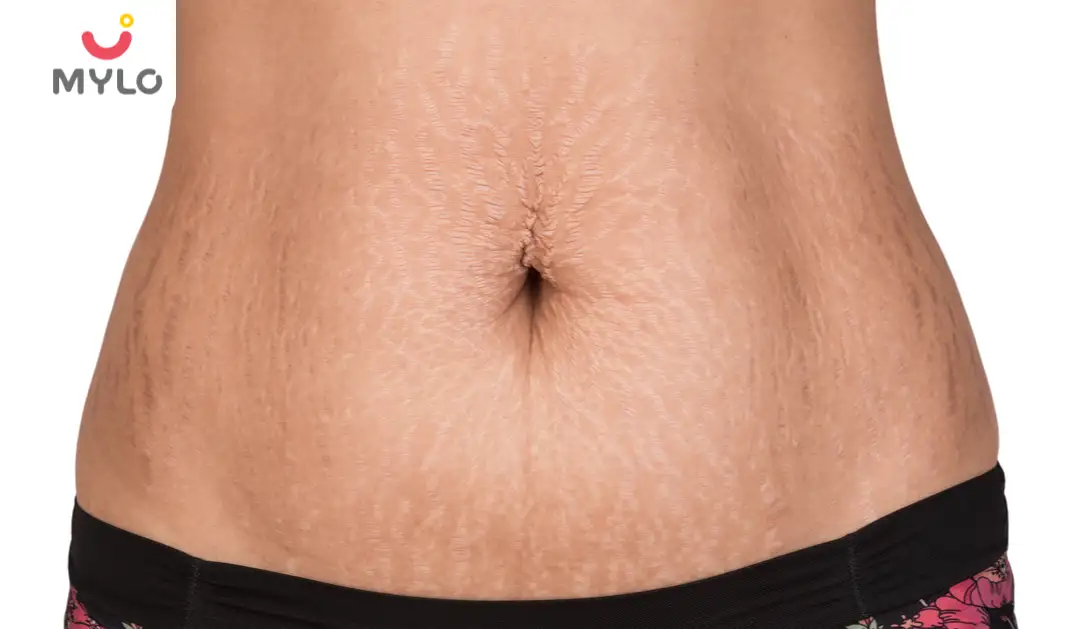
Stretch Marks
Stretch Marks Removal: Tips & Remedies
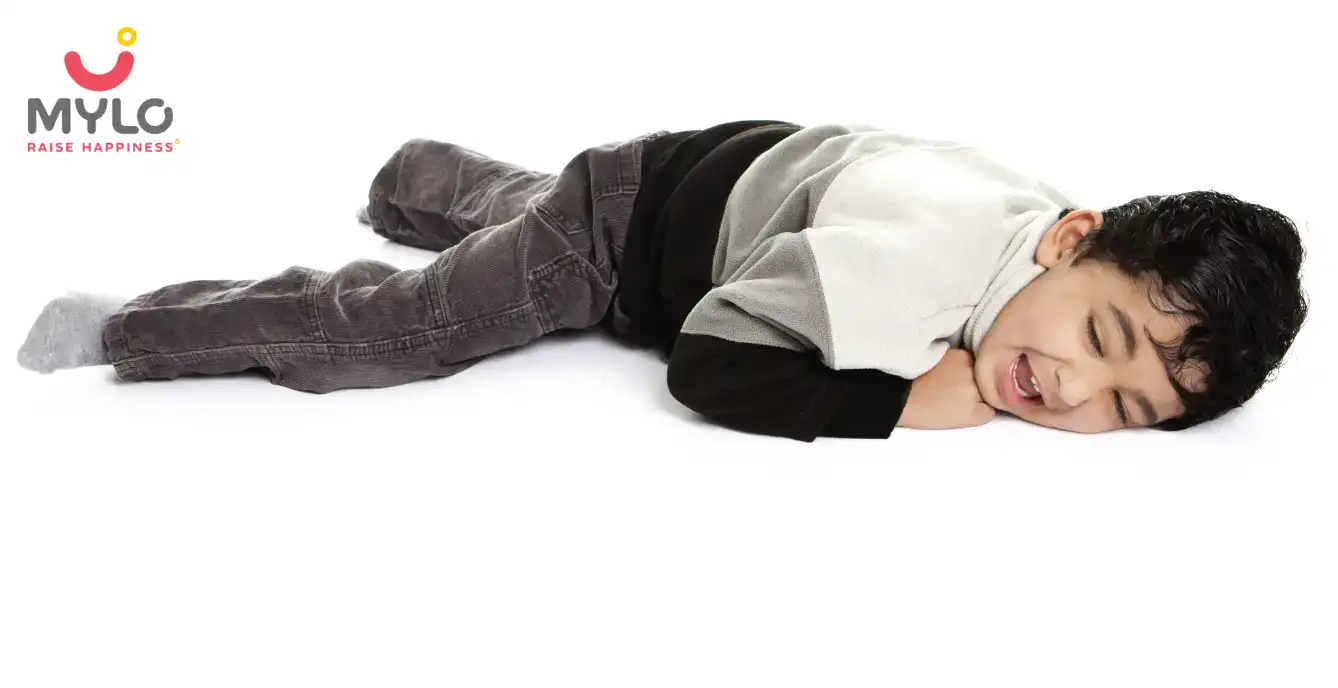
Fussy Baby
How Can Dads Calm A Fussy Toddler

General Father
How to prepare your older child for a new baby
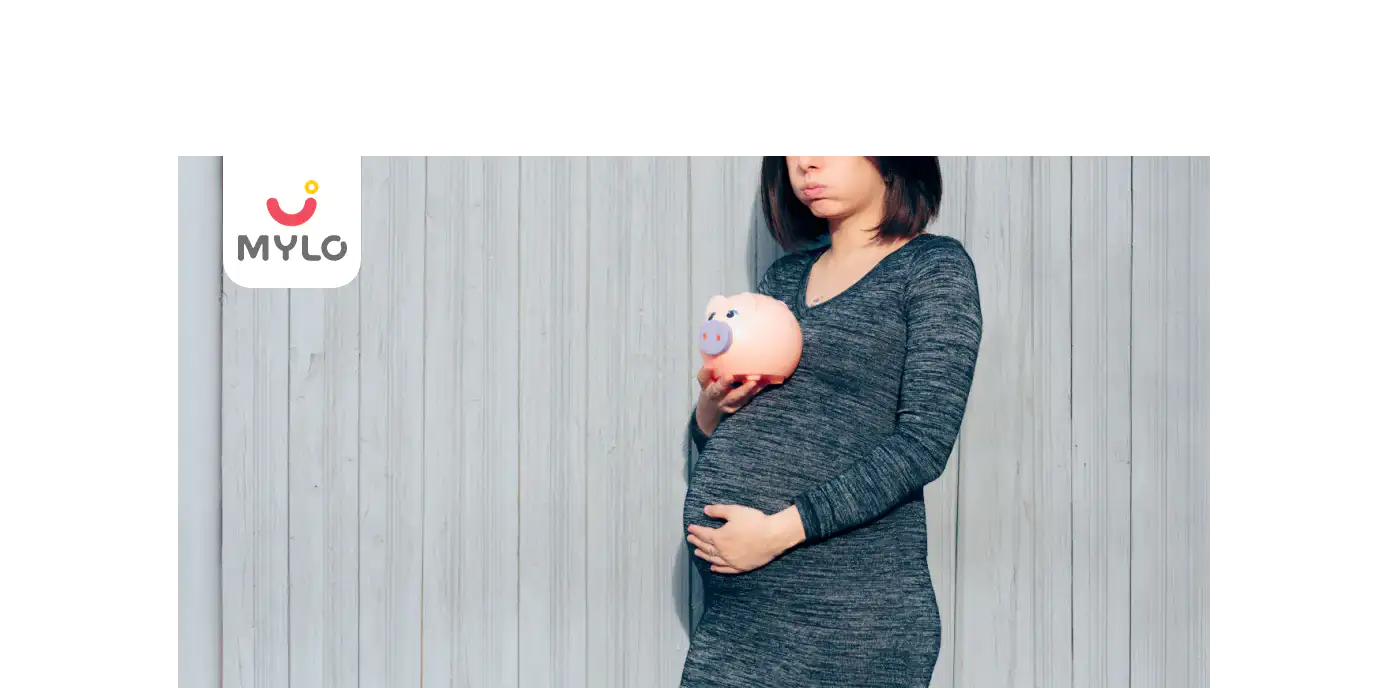
General Father
5 Financial Moves You Must Make Before Your Baby Arrives
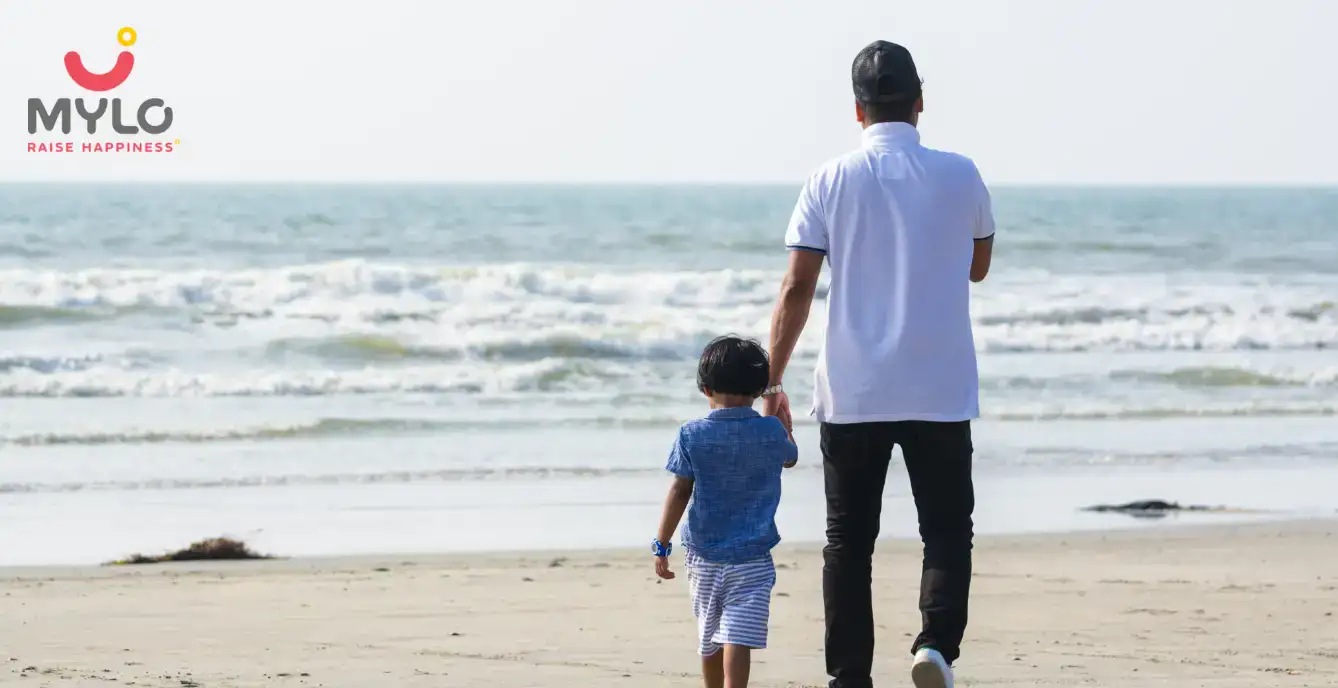
General Father
Daddy-Baby bonding from Pregnancy to Childbirth: Top 7 tips for you
- How to prepare your child for pre-school
- I am pregnant, can I still breastfeed my toddler?
- My toddler has bad breath. what should I do?
- When will my toddler learn how to scribble or draw?
- Can loud volume affect my toddler's ears?
- Running & Jumping Milestones for your toddler
- Activities to keep an active toddler occupied at home
- Girls' growth chart: 24 to 36 months
- What to do if your toddler is overweight?
- Electric toothbrush for Toddlers: Is it safe?
- Teaching good eating habits to your kids
- How to Introduce Books to Your Child?
- This is how you can talk to your child about strangers
- A healthy meal plan for your 2-year-old


AWARDS AND RECOGNITION

Mylo wins Forbes D2C Disruptor award

Mylo wins The Economic Times Promising Brands 2022
AS SEEN IN
















- Mylo Care: Effective and science-backed personal care and wellness solutions for a joyful you.
- Mylo Baby: Science-backed, gentle and effective personal care & hygiene range for your little one.
- Mylo Community: Trusted and empathetic community of 10mn+ parents and experts.
Product Categories
baby carrier | baby soap | baby wipes | stretch marks cream | baby cream | baby shampoo | baby massage oil | baby hair oil | stretch marks oil | baby body wash | baby powder | baby lotion | diaper rash cream | newborn diapers | teether | baby kajal | baby diapers | cloth diapers |





